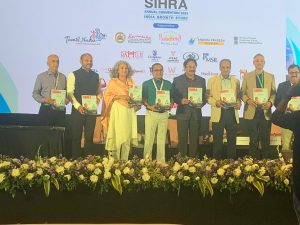SIHRA has concluded its annual convention in Visakhapatnam with over 400 delegates in attendance. With senior hospitality professionals, growth in tier-II cities and sustainability remained key points of discussions. Industry experts focussed on new initiatives to enhance the sector in the region.
Read More »Hospitality industry in South India to protest GST rates
Following the recent announcement of the 28 per cent GST rates for hotels in the luxury category and those that charge a tariff of more Rs. 5000, to be applicable from July 1, the hospitality industry in South India is protesting the move. K. Syama Raju, President, SIHRA, says, “The recent developments and policies belie the importance of our industry and fail to recognise that this Industry is one of the largest employment generators and net foreign exchange earners with an expected exponential growth. It is imperative that we impress the government of our displeasure on these recent developments that are adversely affecting our industry. We commend the authorities for recognising the value of tourism by lower GST rates for one value chain of tourism i.e. travel, tours and transportation but are extremely disappointed that for the other part i.e. hotels & restaurants a regressive GST taxation regime has been applied. Hotel & restaurant businesses are striving to create higher standards and get higher ratings but the more punitive is the GST regime. Economic & visionary development of the industry cannot simultaneously be branded by exclusivity. The main objectives of GST is to minimise the cascading effect of taxation, harmonise the tax base, laws and administrative procedures across the country, creating a common playing field to promote healthy competition amongst the states that will ensure certain standards across the industry and most importantly minimizing tax slabs to avoid classification issues. The industry is coming together to protest on May 30, 2017, to register dissent against the adverse impact of the proposed GST rates in southern states.”
Read More » Tourism Breaking News
Tourism Breaking News

